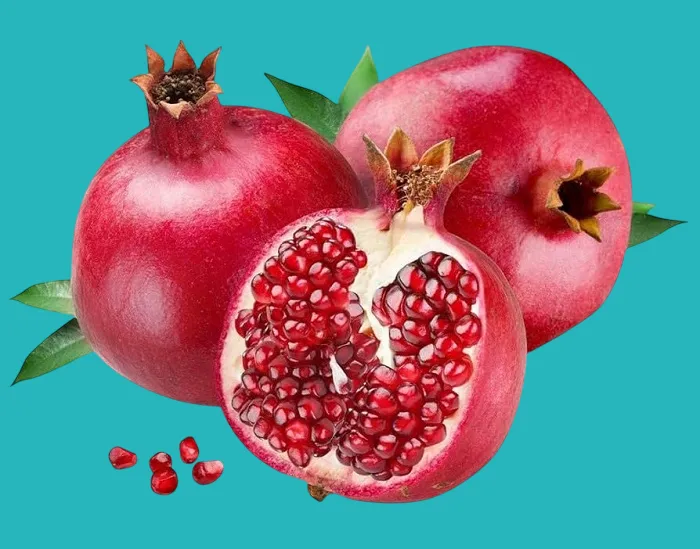Pomegranate is one of the richest fruits in beneficial elements and natural antioxidants. It is not just a delicious fruit, but a strong protective shield against many chronic diseases that threaten human health.
Nutritional Value of Pomegranate
Pomegranate contains a unique combination of elements that support the body, such as:
- Powerful antioxidants such as punicalagin and punicic acid.
- Vitamins C, K, and B5.
- Important minerals such as potassium and iron.
- Dietary fiber that aids digestion and regulates blood sugar.
Benefits of Pomegranate for Heart Health

Pomegranate is considered one of the best foods for protecting the heart thanks to its powerful effect on blood vessels, as it:
- Reduces harmful cholesterol levels in the blood.
- Improves blood flow and prevents atherosclerosis.
- Reduces the risk of heart attacks and strokes.
Benefits of Pomegranate in Regulating Blood Pressure
Eating pomegranate regularly helps maintain balanced blood pressure because it:
- Dilutes blood vessels and improves their elasticity.
- Reduces inflammation in arterial walls.
- Reduces high blood pressure caused by stress or an unhealthy diet.
The Role of Pomegranate in Fighting Cancer
Pomegranate is rich in antioxidants that fight the growth of cancer cells. Its benefits in this regard include:
- Inhibiting the growth of tumors in the colon, prostate, and breast.
- Protecting cells from damage caused by free radicals.
- Supporting the immune system to combat any abnormal cell activity.
The Importance of Pomegranate in Preventing Diabetes
Pomegranate helps prevent diabetes and regulate blood glucose levels thanks to:
- It contains fiber that reduces sugar absorption.
- It has a positive effect on insulin resistance.
- It improves metabolism and reduces inflammation associated with diabetes.
Pomegranate and Combating Chronic Inflammation
One of the most prominent benefits of pomegranate is that it acts as a natural anti-inflammatory, which contributes to:
- Reducing the risk of joint and rheumatoid diseases.
- Supporting liver health and protecting it from inflammation.
- Boosting the immune system to fight infection.
The Importance of Pomegranate for Brain Health and Memory

Pomegranate is known for its role in supporting brain function and preventing cognitive decline. It:
- Improves memory and concentration.
- Reduces the risk of Alzheimer's disease.
- Stimulates blood circulation in the brain, which supports mental performance.
Benefits of pomegranate for skin health
Thanks to its richness in antioxidants, pomegranate is the skin's best friend, as it:
- Delays the appearance of wrinkles and other signs of aging.
- Promotes collagen production and gives the skin a natural glow.
- Protects the skin from sun damage and pollution.
Best Ways to Eat Pomegranate to Reap Its Benefits
To get the most out of pomegranate, you can eat it by:
- Eating fresh pomegranate seeds directly.
- Drinking natural pomegranate juice without sugar.
- Adding it to a salad or yogurt for a nutrient-rich snack.
Can pomegranate lower cholesterol?
Yes, studies have shown that pomegranate reduces bad cholesterol and raises good cholesterol in the body.
Is pomegranate juice good for diabetics?
It's best to consume it in moderate amounts and without added sugar, as it helps regulate blood glucose levels without a sudden spike in blood sugar.
Does pomegranate aid in weight loss?
Yes, because it's rich in fiber, reduces appetite, and improves metabolism.
Can you eat pomegranates daily?
Certainly, one glass of pomegranate juice or one medium fruit daily provides the body with continuous protection against inflammation and chronic diseases.
Article Summary
Pomegranates are a fruit rich in health benefits. They protect the heart, regulate blood pressure, reduce cholesterol, and support immunity against chronic diseases.
Incorporating them into your daily diet is a simple step toward a longer, healthier life.